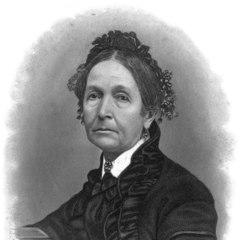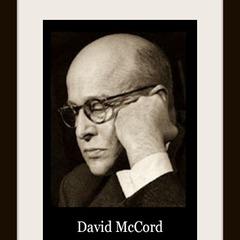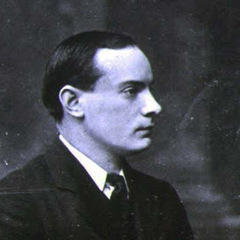Edward Young Quotes - Page 7

Edward Young, Charles Edward DE COETLOGON (1793). “Night thoughts on life death and immortality ... to which are added the life of the author and a paraphrase on part of the Book of Job”, p.9
William Danby, Edward Young (1832). “Extracts from Young's Night thoughts, with observations upon them”, p.15
Edward Young (1821). “Night Thoughts on Life, Death, and Immortality”, p.25
Edward Young (1719). “The dramatic works of Edward Young”, p.72
Procrastination is the thief of time: Year after year it steals, till all are fled.
Edward Young, George Gilfillan (1853). “Night Thoughts”, p.17
Edward Young (1730). “Busiris, King of Egypt. A tragedy, etc”, p.17
Edward Young (1866). “The complete poetical works of Edward Young. With life”, p.267
Some for renown, on scraps of learning dote, And think they grow immortal as they quote.
Edward Young (1799). “The poetical works of ... E. Young. With the life of the author. Cooke's ed”, p.37
The blood will follow where the knife is driven, The flesh will quiver where the pincers tear.
Edward Young, John Doran, James Nichols (1854). “The Complete Works, Poetry and Prose of the Rev. Edward Young, LL.D.: Revised and Collated with the Earliest Editions. To which is Prefixed A Life of the Author”, p.243
John Milton, Edward Young, Thomas Gray, James Beattie, William Collins (1836). “The Poetical Works of Milton, Young, Gray, Beattie, and Collins”, p.188
Edward Young, Dr. Doran (John) (1854). “Imperium Pelagi, a naval lyric. Epistles to Mr. Pope, concerning the authors of the age. Sea-piece. The foreign address; or the best argument for peace. Epitaph on Lord Aubrey Beauclerk. Reflections on the public situation of the kingdom. An epistle to the right hon. Sir Robert Walpole. The old man's relapse. Resignation. Tragedies. Prose works”, p.79
Edward Young (1756). “The Brothers: A Tragedy”, p.6
Old men love novelties; the last arriv'd Still pleases best; the youngest steals their smiles.
Edward Young (1802). “The Works of the Author of the Night-thoughts”, p.112
Polite diseases make some idiots vain, Which, if unfortunately well, they feign.
Edward Young, Thomas Park (1808). “The Poetical Works of Edward Young: In Four Volumes. Collated with the Best Editions:”, p.107
Edward Young (1823). “Night Thoughts on Life, Death & Immortality: To which is Added a Paraphrase on Part of the Book of Job, and the Last Day, a Poem”, p.4
Edward Young (1811). “The Works of the Rev. Dr. Edward Young”, p.80
Heaven's Sovereign saves all beings but himselfThat hideous sight,-a naked human heart.
Edward Young (1813). “The Complaint; Or, Night Thoughts”, p.51
Edward Young (1721). “The Revenge: A Tragedy. As it is Acted at the Theatre-Royal in Drury-Lane. By His Majesty's Servants”, p.5
When men of infamy to grandeur soar, They light a torch to show their shame the more.
Edward Young (1866). “The complete poetical works of Edward Young. With life”, p.271
Edward Young, Samuel Johnson (1822). “The Poems of Edward Young”, p.77
Edward Young, John Doran, James Nichols (1854). “The Complete Works, Poetry and Prose of the Rev. Edward Young, LL.D.: Revised and Collated with the Earliest Editions. To which is Prefixed A Life of the Author”, p.168
The weak have remedies, the wise have joys; superior wisdom is superior bliss.
Edward Young, Charles Edward DE COETLOGON (1793). “Night thoughts on life death and immortality ... to which are added the life of the author and a paraphrase on part of the Book of Job”, p.236
Edward Young (1768). “The Complaint: Or, Night-thoughts on Life, Death, and Immortality: To which is Added, a Paraphrase on Part of the Book of Job..”, p.7






